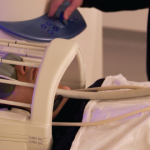NEW YORK (Reuters Health—Telemedicine follow up based on patient-reported outcome (PRO) is noninferior to conventional outpatient care for tight control of disease activity in rheumatoid arthritis (RA) patients with low disease activity or remission, new findings show. “Even though patients in the [telemedicine] follow-up groups requested more acute visits, they over-all had a more than…
Data Tool: How to Design an EHR Algorithm to Identify SLE Patients
Electronic health records enable researchers to access significant amounts of patient data, but identifying subjects with a specific condition can be difficult. In a recent study, researchers successfully designed three algorithms to identify patients with SLE, incorporating multiple counts of the ICD-9 code, laboratory testing, medication data and keywords. In the future, these algorithms may successfully transfer to other systems to aid research…

fMRI Can Help Diagnose Fibromyalgia
Brain imaging can distinguish fibromyalgia patients from healthy controls with high sensitivity and specificity, according to two papers published nearly simultaneously in Pain late last summer, by groups at the Universities of Colorado and Michigan, respectively. Somewhat surprisingly to the authors and others, in the Colorado study, which used both painful and nonpainful stimuli, the…
Medical Records Don’t Always Match What Patients Say
(Reuters Health)—Symptoms that patients describe to doctors may not always be documented in electronic medical records, a small U.S. study suggests. To test out how well the records match reality, researchers compared symptoms that 162 patients checked off on paper-based questionnaires with the information entered in patients’ electronic charts at eye clinics. Roughly one-third of…
Digital Healthcare Devices, Sensors Gaining Ground as Portable Personal Coaches
WASHINGTON, D.C.—A friendly, but stern, voice talks to Joseph Kvedar, MD, vice president of Connected Health at Partners HealthCare, from his smartphone. Dr. Kvedar has just woken up. “Good morning, Joe! Here’s the tale of the tape. Your blood pressure and cholesterol are fine. Your sleep deficit is now up to three hours for the week….

Electronic Medical Records Have Mixed Impact on Quality, Quantity of Healthcare
The widespread implementation of electronic medical records (EMRs) and electronic health records (EHRs) has significantly changed the quality and quantity of healthcare for both the better and the worse. The digitalization of medical records provides comprehensive documentation of all events and actions associated with an individual’s medical care. Likewise, legibility, accountability and credibility are greatly…

Cyber Safety in the HIPAA Age
Ready for a cyber checkup? Auditing your health IT policies, safeguarding your hardware and educating your staff on the importance of data security should be routine, according to industry experts…

Considering an Investment in a Healthcare Tech Startup? 5 Tips
Investing in a healthcare tech startup can be tempting for rheumatologists looking for a change of pace. Here are a few insights on the risks and benefits of investing…
RISE Registry Promises to Improve Care & Research for Rheumatology
In 2014, the ACR launched the Rheumatology Informatics System for Effectiveness (RISE), a national electronic health record (EHR)-enabled registry. The goal: To help participating rheumatologists and practices leverage the new wave of big data created by the use of EHR, advance research and improve overall quality of care. A new analysis examines the RISE structure and the initial patient data collected by the registry…

Telemedicine: One Rheumatologist’s Experience
Once the barriers to telemedicine are overcome, this modern approach to the practice of medicine solves patient access issues and increases physician productivity, says Daniel Albert, MD, a pediatric rheumatologist at the Center for Telehealth at Dartmouth-Hitchcock Medical Center…
- « Previous Page
- 1
- …
- 10
- 11
- 12
- 13
- 14
- …
- 31
- Next Page »